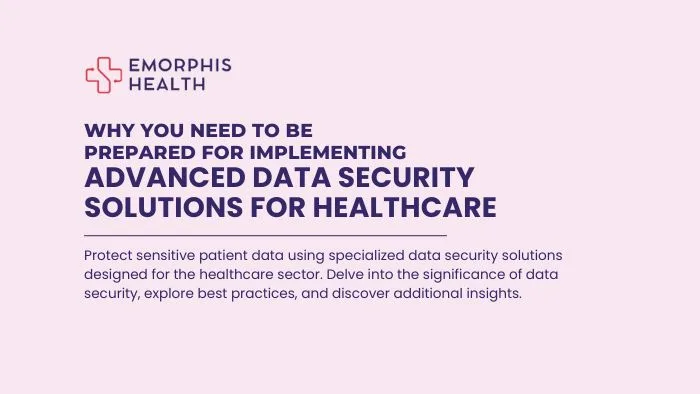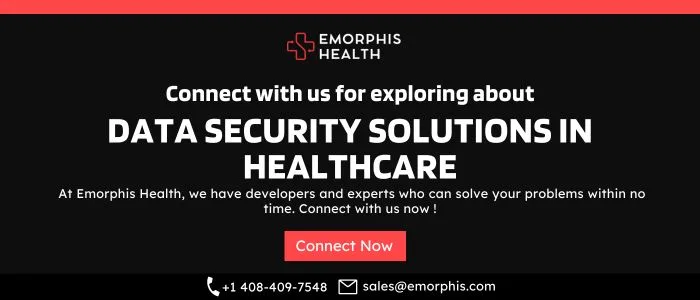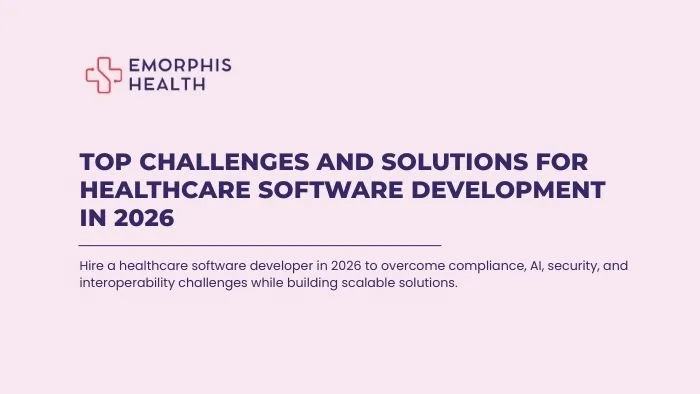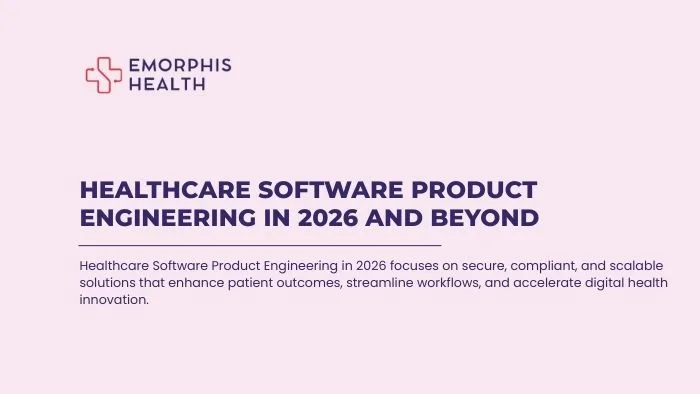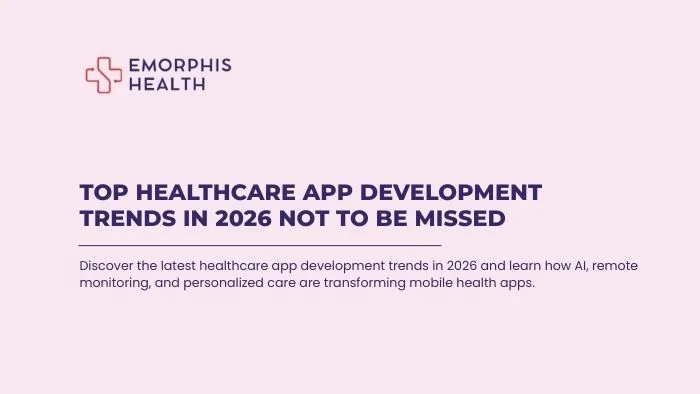Are You Prepared?
See Contents
Change Healthcare was hit by a ransomware attack by the BlackCat/ALPHV group in late February 2024 according to a Techtarget report. The data security attack disrupted their systems and impacted a significant portion of the healthcare system in the US. Here’s a quick summary:
- Attacker: BlackCat/ALPHV ransomware group
- Impact: Disrupted Change Healthcare systems, affecting claims processing and payments to healthcare providers nationwide.
- Current Status as of Mid-March 2024: Recovery is ongoing, with some functionalities expected to be restored by mid-March (2024). The US Department of Health and Human Services (HHS) is involved in coordinating the response and assisting healthcare providers.
This attack highlights the critical role Change Healthcare plays in the healthcare system and the potential consequences of cyberattacks on essential infrastructure.
Dr. Céline Gounder, a medical contributor for CBS News and editor-at-large for public health at KFF Health News, underscored the gravity of the situation in her statement as published in a report. She emphasized that the recent cyberattack on Change Healthcare represents the most significant breach ever witnessed within the American healthcare system. With Change Healthcare responsible for processing medical payments for approximately one-third of the nation’s patients, the scope of this attack is truly immense. This alarming incident highlights the vulnerability of critical healthcare infrastructure and the urgent need for robust cybersecurity measures to safeguard patient data and preserve the integrity of healthcare services.
What are its consequences?
The consequences of the Change Healthcare cyberattack are wide-ranging and have impacted various stakeholders in the healthcare system.
Healthcare Providers
Hospitals and clinics are facing disruptions in the following areas.
- Billing and Claims Processing: Delays in receiving payments due to disrupted electronic systems.
- Eligibility Checks: Inability to quickly verify patient insurance coverage, creating delays in treatment.
- Prior Authorization Requests: Difficulty obtaining approvals for certain procedures, potentially impacting patient care.
- Administrative Burden: Forced to revert to manual processes for tasks like billing, increasing costs and staff workload.
Patients
- Prescription Delays: Pharmacies might struggle to fill prescriptions due to connectivity issues.
- Cost Concerns: Patients might have to self-pay for medications due to unavailable cost estimation services.
- Potential Treatment Delays: Delays in approvals or eligibility checks could impact access to timely care.
Government
The Department of Health and Human Services (HHS) is involved in the following.
- Communication: Keeping healthcare providers informed about the situation and available resources.
- Flexibility: Offering temporary measures like expedited enrollment for new clearinghouses to process claims.
- Financial Assistance: Encouraging payers to offer accelerated payments to healthcare providers facing cash flow issues.
Here are some steps stakeholders are taking to mitigate the impact.
- Manual Workarounds: Healthcare providers are resorting to manual processes for billing, eligibility checks, etc., which is time-consuming and inefficient.
- Communication: Hospitals and clinics are keeping patients updated about potential delays and working with them to ensure they receive necessary care.
- Collaboration: Industry stakeholders are working together to find solutions and expedite recovery efforts.
It’s important to note that recovery from the attack is ongoing, and some functionalities might not be fully restored until mid-March 2024.
Let’s now look at some of the key areas we should be focusing on for Data security in healthcare.
Importance of Data Security in Healthcare and the evolving landscape
In the fast-evolving landscape of healthcare, the significance of robust data security in healthcare cannot be overstated. Beyond the imperative of providing quality patient care, healthcare providers must prioritize safeguarding sensitive information. With the digital transformation of medical records and the increasing reliance on technology, the vulnerability of patient data to cyber threats has become a pressing concern.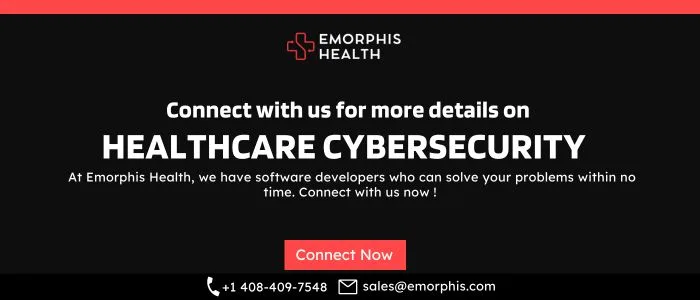
1. Data Security in Healthcare, A Critical Priority
Data security in healthcare is a critical priority for several reasons. First and foremost, it ensures the confidentiality and integrity of patient records, protecting sensitive information from falling into the wrong hands. This is not merely about compliance with regulations like HIPAA, but a commitment to maintaining the trust patients place in the healthcare system.
2. Patient Privacy and Trust
Patients place their most personal and sensitive information in the hands of healthcare providers, trusting them with their confidential data. Therefore, any compromise in data security not only jeopardizes patient privacy but also erodes the trust that forms the foundation of the healthcare provider-patient relationship. This trust is fundamental to effective healthcare delivery and the overall well-being of individuals seeking medical assistance.
3. Financial Implications of Data Breaches
Moreover, the financial implications of data breaches in healthcare cannot be ignored. The cost of recovering from a security incident, the potential legal consequences, and the damage to the reputation of healthcare organizations can be staggering. In a digital era where cyber threats are becoming increasingly sophisticated, the financial fallout from a breach can extend far beyond immediate remediation efforts.
4. Comprehensive Protection through Data Security Measures
Also, adopting a comprehensive approach to data security in healthcare is not only about defending against external threats but also addressing internal vulnerabilities. Implementing measures such as database activity monitoring and regular security audits ensures that the entire ecosystem of healthcare data is fortified against both external and internal risks.
5. Ensuring Continuity of Care
Moreover, data security is intricately linked to the continuity of patient care. Any disruption caused by a cyberattack can potentially compromise the timely and accurate delivery of medical services. Patient outcomes depend on the accessibility and integrity of their health records, making it imperative to fortify the healthcare infrastructure against unforeseen security threats.
What are the Best Practices for Healthcare Data Security?
In the ever-evolving landscape of healthcare, implementing robust best practices for data security is paramount to safeguarding sensitive information and maintaining the trust of patients. Here, we delve into key best practices, accompanied by transition words, that healthcare organizations can adopt to fortify their data security measures:
a. Encryption and Secure Transmission
To begin with, implementing robust encryption protocols is essential for protecting healthcare data during transmission and storage.
b. Access Controls and Authentication
Moreover, establishing stringent access controls is critical to restrict data access only to authorized personnel. Implementing role-based access controls ensures that individuals have access only to the information necessary for their specific roles. Additionally, incorporating multi-factor authentication further enhances security by requiring multiple forms of verification for access.
c. Regular Security Audits and Assessments
Furthermore, conducting regular security audits and assessments is essential to identify vulnerabilities and weaknesses in the system. Proactive measures, such as penetration testing and vulnerability scanning, allow healthcare organizations to address potential threats before they can be exploited. Regular assessments ensure that security protocols remain robust and up-to-date.
d. Employee Training and Awareness
Also, recognizing that human error is a significant factor in data breaches, comprehensive employee training programs are indispensable. Training sessions should emphasize the importance of data security, educate staff on potential threats like phishing attacks, and provide guidelines for secure data handling. Regular awareness campaigns help foster a culture of security within the organization.
e. Incident Response Planning
Moreover, having a well-defined incident response plan is crucial for effectively managing and mitigating the impact of data breaches. Healthcare organizations should outline clear steps to follow in the event of a security incident, designate responsibilities, and conduct regular drills to ensure swift and efficient responses. A well-prepared incident response plan minimizes the damage caused by security breaches.
f. Data Backups and Recovery
Additionally, implementing regular data backups is essential to ensure that critical information can be recovered in the event of data loss or ransomware attacks. Storing backups in secure, offsite locations adds an extra layer of protection. Regularly testing the data recovery process ensures the organization’s ability to resume operations promptly.
g. Vendor Management and Third-Party Security
Furthermore, healthcare organizations must extend their security focus beyond internal operations. Establishing rigorous vendor management practices, including assessing third-party security measures, ensures that external partners adhere to the same high standards. This is particularly crucial when outsourcing services or relying on third-party solutions.
h. Continuous Monitoring and Threat Intelligence
Lastly, adopting continuous monitoring practices and leveraging threat intelligence solutions is essential for staying ahead of evolving cybersecurity threats. Proactively identifying and responding to potential threats in real time allows healthcare organizations to bolster their defenses and adapt to emerging risks.
In conclusion, adopting these best practices with a strategic and comprehensive approach is key to fortifying healthcare data security. By integrating encryption, access controls, regular assessments, employee training, incident response planning, data backups, vendor management, and continuous monitoring, healthcare organizations can create a robust defense against the evolving landscape of cybersecurity threats.
Choose Data Security Solutions Now – Strategically Selecting Advanced Data Security Solutions
In the dynamic landscape of healthcare, where technology plays a pivotal role, selecting the right data security solutions is paramount to safeguarding sensitive patient information and ensuring compliance with stringent regulatory requirements. In this era of digital transformation, healthcare entities must be vigilant in adopting advanced technology-driven solutions to mitigate the ever-evolving threats to data security.
i. Comprehensive Encryption Technologies
To commence, deploying cutting-edge encryption technologies is pivotal in safeguarding healthcare data at rest and in transit. Encryption acts as a robust shield, rendering sensitive information indecipherable to unauthorized parties. Furthermore, the use of advanced encryption algorithms ensures that patient data remains confidential and secure.
ii. Blockchain for Immutable Data Integrity
Moreover, consider integrating blockchain technology for immutable data integrity. Blockchain, renowned for its decentralized and tamper-resistant nature, provides an innovative solution to maintain the integrity of medical records. This technology ensures that once data is recorded, it cannot be altered, providing a secure and transparent ledger for healthcare information.
iii. Biometric Authentication Systems
Additionally, implementing biometric authentication systems enhances access controls and strengthens user verification. Technologies such as fingerprint scanning, facial recognition, and iris scanning add an extra layer of security by uniquely identifying individuals. This not only prevents unauthorized access but also ensures that only authorized personnel can handle sensitive healthcare data.
iv. Cutting-Edge Intrusion Detection and Prevention Systems (IDPS)
Furthermore, investing in advanced Intrusion Detection and Prevention Systems (IDPS) is crucial for real-time threat detection. These technologies actively monitor network traffic, identifying and thwarting potential security threats promptly. With the ability to recognize abnormal patterns and behaviors, IDPS enhances the healthcare entity’s resilience against cyberattacks.
v. Cloud Data Security Solutions
Also, consider leveraging cloud data security solutions tailored for the healthcare sector. Cloud technologies, when properly secured, offer scalable and flexible solutions for storing and managing healthcare data. Implementing robust security measures, including encryption and access controls, ensures a secure transition to cloud-based storage without compromising data integrity.
vi. Artificial Intelligence for Predictive Security
Moreover, integrating artificial intelligence (AI) for predictive security analytics is a forward-looking approach. AI-driven solutions analyze patterns, detect anomalies, and predict potential security threats before they materialize. By employing machine learning algorithms, healthcare entities can stay one step ahead in identifying and mitigating emerging cybersecurity risks.
vii. Endpoint Security Solutions
Additionally, fortifying endpoint security is crucial in the healthcare industry, where various devices access and transmit sensitive data. Implementing advanced endpoint security solutions, including firewalls, antivirus software, and device encryption, ensures that every point of access is secure and resilient against cyber threats.
viii. Regular Security Audits and Penetration Testing
Lastly, adopting a proactive stance through regular security audits and penetration testing is essential. By periodically assessing the robustness of implemented security solutions, healthcare entities can identify vulnerabilities and address potential weaknesses. This ongoing evaluation ensures that the chosen data security solutions remain effective in the face of evolving technological and cybersecurity landscapes.
Conclusion
In conclusion, the selection of data security solutions for healthcare entities requires a strategic and technology-driven approach. By embracing encryption, blockchain, biometric authentication, intrusion detection, cloud security, artificial intelligence, endpoint protection, and regular audits, healthcare organizations can create a resilient defense against cyber threats. The proactive integration of these technologies not only safeguards sensitive patient information but also establishes a foundation for secure and compliant healthcare data management. Choose your data security solutions wisely to navigate the technological landscape and protect the integrity of healthcare data in the digital age.
Further, click the links to find more details on Healthcare Cybersecurity and the role of managed security service providers.

